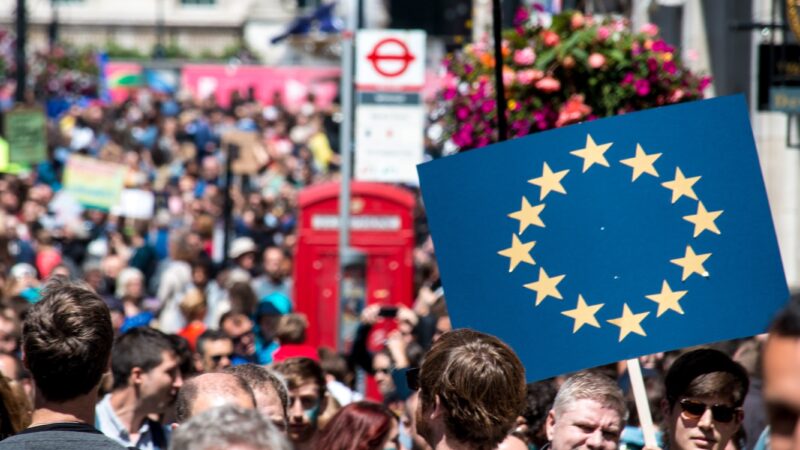On the Killing of Sir David
This article was originally published on October 2021.
On the 15th of October 2021, at around midday, police were called to Belfairs Methodist Church in Leigh-on-Sea, where a man had reportedly been stabbed 17 times. That man was Conservative MP Sir David Amess, who died roughly 2 hours later. The second assassination of a parliamentarian in 5 years, Sir David Amess MP was murdered whilst carrying out his duty as a representative, attending his weekly constituency surgery.
As with similar tragedies, the conversation surrounding the event is entirely comprised of people fighting over which conversation “we should be having” instead. For instance, people of certain political dispositions were more aggravated by the press reporting that the assassin was of Somali origin, rather than the actual murder itself; wanting to talk about “muh racist Daily Mail” than anything of importance or substance. As disorienting as tragedies are, they can be a good source of sobriety, putting on full display the true nature of peoples’ character and allegiance.
Whilst this should be a wakeup call for Britain to radically reform its asylum and immigration policy, mere policy reform will be a job half-done and therefore a lesson only half-learned.
To summarise what has happened: a man from Somalia immigrated to the United Kingdom, acquired British citizenship, and assassinated a sitting MP in broad daylight. Leaving aside the fact that it shouldn’t be so absurdly easy for someone outside of Britain to enter the country and kill one of its elected representatives, it must be noted that there are two possibilities given this information: either the killer held his extremist views before entering the UK, or he was radicalized here.
If the former, it would simply be a case of reducing or shutting off immigration from designated “high-risk” countries. However, given the prevailing ideology of the political and media establishment, such a solution would undoubtedly be resisted at every turn. If the latter, the need for policy reform doesn’t change (it shouldn’t be so easy to enter the United Kingdom from a country like Somalia, acquire British citizenship, kill an MP, etc.).
However, what does change is the focus of the problem. If the assassin adopted his extremist views after he arrived in Britain, it means that Britain is producing, at the very least permitting, people to exist within its own borders that actively want to destroy it. In short: our policy problems stem from a deeper, ideological, and existential problem. Britain is indifferent to its own survival.
Some may argue that this problem has been diagnosed before, and they would be right. If so, why diagnose the problem again? What good is there repeating what people know? Whilst Chesterton correctly notes that ‘obvious’ things cease to be so overtime, courtesy of people not wanting to remind themselves of what is ‘obvious’, that is not the point being made here. The point is that the remedies proscribed in recent years to this problem have been ineffective.
Ever since 9/11, the hegemonic counter-Islamist rhetoric has been “We’re the West. We’re more liberal than you, we’re more diverse than you, we’re more inclusive than you, we’re more tolerant than you, and if you cross us there will be hell to pay!”. As with discussions surrounding the need to create cohesion between native and immigrant populations, “integration” is touted as the solution to mitigating Islamism at home. By demanding allegiance to a common liberal culture, espousing fundamental values of tolerance, inclusivity, diversity, and other vaguely defined terms, we can create a stable society.
When the shared identity of a society is liberty, is tolerance, is inclusion, is diversity, it will tear itself, both ideologically and in practice, apart by its own contradictions. Liberty produces chaos, leading to surveillance and bureaucracy not necessary in high-trust, homogenous societies. Tolerance produces indifference to forces bent on destroying society and the Tolerance which it provides. Inclusion can only produce puritanical exclusion, for no amount of Inclusion will ever be inclusive enough. Diversity produces social fragmentation, which can only be overcome by producing a new monoculture; a watered-down culture, portioned by diversity officers, that nobody can identify with. Ultimately, the attempt to encompass all, necessarily alienates all. This is the doctrine of modern political liberalism.
The logical conclusion of this ideological farce is what sensible people have known all along: order is a prerequisite to liberty, unanimity is a prerequisite to tolerance, exclusion is a prerequisite to inclusion, homogeneity is a prerequisite to diversity; all provided until they threaten the basis of their existence. These are courtesies, not identities; they are courtesies only possible when rooted in something more fundamental. As a result of this project, we have become a nation of identikits, slogans churned out by committees, and cohesion which relies on debilitating consumerism, ever-complicating bureaucracy and tyrannical officialdom; a society held together by paper instead of blood, and a nation that cannot inspire loyalty in its inhabitants. On the whole, not a sustainable state of affairs.
At bottom level, our problem is a near flat out denial of the British in-group. Liberal technocracy has gutted Britishness and been prancing around in its skin. Over 1000 years – roughly 300 years of them in monarchical union – the United Kingdom, a bounty of organically developing culture, has amounted to Gogglebox, PG Tips, and twee jokes about the rain. It’s about politely asking if “the queue starts here” for the polling station. Remember: STRONG BRITAIN, GREAT NATION, STRONG BRITAIN, GREAT NAAAAATION.
Perhaps because we are an island, relatively untouched and untroubled throughout our history, especially when compared to the geographical basket case of continental Europe, that we have never had to think about the nature of our identity in as much depth, making it suspectable to cynical exploitation by our current elites. See, the obvious isn’t so obvious!
Given the repellent artificiality of our culture, is it any surprise that it spits out extremists of all shapes and sizes? Our inability, often refusal, to define ourselves, opting instead to abstract our identity away, leaves us vulnerable to evildoers that yearn to see the vacuum filled. Habri Ali was not only a naturalised British citizen, but he was also known to the police courtesy of his referral to Prevent. This man had every form of “education” about our “values” that could be provided, and it changed nothing.
As much as liberal democrats – and even reactionary nationalists – might not like to accept it, nationalism and democracy are conjoined twins, the will of the people is wrapped up in the idea of “a people” of common identity rooted to a particular place, making the acceptance of democratic decisions possible. Bleating about the dangers of identity politics doesn’t change the fact that British identity politics must necessarily be treated as an exception.
When the future of Britain hangs in the balance, it is more that right to ask: “who are the British people?”. If we are serious about making amends, the “conversation” we need to be having is this: what is Britishness? In my mind, one thing is for certain: a foreign-born Islamist that stabs a representative of the British nation to death isn’t British, and if he is considered British, then he shouldn’t be. I don’t care if he knows where St. Paul’s Cathedral is.










One Step Forward, Two Steps Back
Yesterday, Rishi Sunak announced his intention to cut net migration by 300,000, calling it “the biggest ever cut in net migration” two weeks after the ONS revealed net migration had increased to an unprecedented 745,000, revised up from 672,000.
Despite the claims made by politicians and the press, this announcement isn’t worth getting excited over. I needn’t re-establish the Tories’ abysmal track-record on immigration, partially because it is common knowledge (we’ll get it into the tens of thousands this time, we promise!), but mainly because their policy will prove fraudulent and destructive, even if carried out to the fullest extent.
If the government succeeded in bringing down net migration to their stated target, it would still be far higher than anything experienced before Covid. Up until recently, net migration sat at around 250,000, peaking at over 300,000. As a net figure, these figures included upwards of 500,000 arrivals each year since the early noughties, continuing a rapid increase in arrivals since the late 1990s.
Now-infamous research by Dr David Coleman showed White British people would be a minority in the UK by 2066 if immigration continued at such levels. Coleman’s forecast was published in 2013. Ten years later, net migration has more than doubled with 450,000 every year being treated as a radical reduction by politicians and the press. Of course, it matters not whether such circumstances arrive sooner or later, it would be essentially immoral and consequentially destructive for our society, as we can infer from the past few years alone.
In many ways, what the government is doing is more subversive than not doing anything at all. It is treating pre-Covid net migration as the natural benchmark, implying anything more demanding is a form of deranged and impractical extremism, a notion which couldn’t be further from the truth. Keep in mind: this country saw the rise and fall of the BNP and UKIP, a referendum on EU membership, the triumph of the Brexit Party, and a landslide for the Conservatives before the post-2020 surge in arrivals, all of which were motivated by a fraction of what the “FAR RIGHT” (!!!) Tory government are proposing.
The government’s new policy has no intention of cutting the number of foreign students, graduate worker visas or the skilled workers list. NGOs remain generously funded, no laws or treaties are abolished or amended, whilst social care and graduate visas, along with dodgy postgrad courses at immigration-dependant universities, have been left practically untouched. Typical of the Tories, they can only address immigration in technical terms, seeing at is possibly economically inefficient and occassionally unfair, rather than a matter of sociopolitical importance.
Rather, it would scrap the shortage occupation list, which companies can use to pay foreign workers 20 per cent below the going rate for jobs with so-called “skills shortages”, ban foreign care workers and non-postgraduate students bringing dependants, increase the salary required for skilled foreign workers to get a visa to £38,700, and increase in the health surcharge to £1,035. Simply put, the government’s radical policy to regulate mass migration will not address several of the main causes behind mass migration.
Just like the “biggest tax cut in history”, the “biggest cut to net migration in history” is an admission of defeat disguised as a victory chant. Despite talk of reform, Westminster’s high-immigration, high-tax consensus remains unchanged. Nevertheless, whilst this policy is the epitome of progressivism driving the speed limit, the reaction from progressives has been nothing short of deranged. What is the country to do without the illustrious skillset of Nigerian dependants?! What about all those inspiring Somalian refugees that know how to JavaScript? Who will serve them Pret a Manger?!
Now more than ever, Conservatives should come to terms with the fact that there is no middle ground on this matter. Progressives, liberals, leftists, etc. are immigration maximisers by default and anything less than open borders is a violation of Human Rights™ and International Law™. Flimsy conceptual problems aside, just because something is The Law doesn’t mean its moral, practical or true. Laws are made to be broken; it is the implied function of government. Auctoritas non veritas facit legem!
In addition, the policy has spawned the input of several insufferable non-conservatives, bleating about how it’s ‘unconservative’ to set the wage threshold at the full-time average salary, describing the wage threshold as an attack on personal relationships and cheap foreign lifestyle journalists.
Someone should inform these people that up-ending the historical continuity of a people is as ‘unconservative’ as it gets. Drawing an equivalence between those inside and outside the political community, to the extent that the distinction between the two is functionally meaningless, is also wholly ‘unconservative’ but that doesn’t matter to them either. The reduction of the conservative philosophy to a single point of concern is to reduce the description of a hand to the presence of a thumb. The family is important and the upper-bound of the family – that is, the extended family of the nation – has been under sustained assault from mass migration for no less than 30 years. Can we conserve that, at least?
If our concern is keeping families together, I’m more than happy to support barring migration altogether to safeguard against the disintegration of foreign families, but something tells me these pseudocons wouldn’t be up for such an idea. Indeed, such a policy would be a good thing. Mass immigration has effectively made wage slavery the norm of the British economy, in which third world countries are stripped of their most talented and brought to Britain to work on barely liveable wages, undercutting native demands for better conditions and causing a host of demographic problems in the process.
Given that the recent spike in arrivals was driven primarily by non-EU migrants, originating from significantly poorer countries, it is unlikely that scrapping the shortage occupation list will do much to benefit the English worker. Such people are prepared to work for much less within the legal confines of the UK economy, subjecting themselves to conditions the average Englishman would class as unacceptable, if not downright exploitation. Oh well, at least consecutive years of mass migration has improved the “skills shortage” (it hasn’t).
In light of vague demands for an alternative, a net migration figure of zero would be a more fitting target. Far from unheard of, UK basically had net zero migration from the early 70s up until 1997, the year Modern Britain was founded. That said, this would only suffice as a short-term target. You could achieve net zero migration by importing one million insofar one million leave, the demographic consequences of which wouldn’t be insignificant. Ultimately, we need to cut the number of overall arrivals, not just the net figure, and deport anyone who shouldn’t be here. If we need to smash a few treaties here and there, if we have to fire a few thousand bureaucrats en masse to ensure the survival of the body politic, so be it.
Until then, until we see something substantial, rather than a mixture of boisterous rhetoric, statistical manipulation and historical revisionism, this policy is just like every other promise the Conservatives have made on immigration: one step forward, two steps back.
Photo Credit.